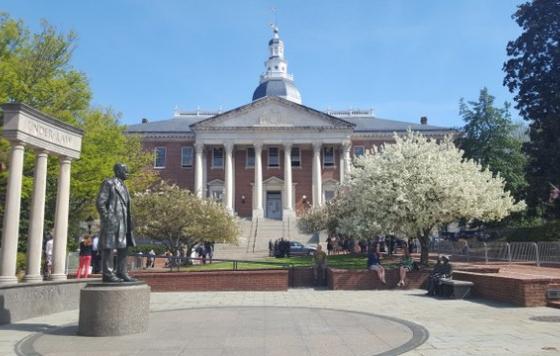
The best way to protect our health from the harms of pollution is to prevent pollution in the first place.
That’s why Clean Water Action is so excited to advocate for the Transportation Climate Initiative (TCI), which Connecticut joined along with nine other states last year. TCI is a regional effort among northeast states to curb transportation emissions that pose significant health impacts for CT’s residents. This was a major step in the right direction, particularly since every county in CT was given a grade of F for poor air quality according to the 2020 report by the American Lung Association.1
Transportation emissions account for 38 percent of Connecticut’s greenhouse gas emissions which contribute to our failing grades.2 Poor air quality leads to exacerbation of respiratory diseases like COPD, asthma, cardiovascular diseases including heart attacks, stroke and premature death. More recently, studies have linked long term exposure to air pollution to increased risk of dying from Covid 19.3 As a nurse, I am acutely aware of the impacts of these diseases in the elderly, young children with rising asthma rates and residents in urban, lower income communities that bear a disproportionate burden of pollution.
According to a 2015 report, a regional clean transportation program could:
- Reduce carbon emissions between 29 to 40 percent by 2030
- Increase economic growth between $11.7 billion and $17.7 billion by 2030, and
- Create between 91,000 to 125,000 jobs.4
TCI utilizes a cap and invest program similar to the successful Regional Greenhouse Gas Initiative. Connecticut would set a cap on emissions from the transportation sector at the source of pollution—the petroleum fuel distributor. These distributors would pay for allowances for every ton of pollution they are responsible for. Allowances are purchased through an auction with proceeds going to fund cleaner transportation like electric public and school buses and community investments that make our cities and towns more walkable and bikeable.
These policies, and the funding from the proceeds, will help reduce transportation emissions and clean up our air. Imagine if we saw a decline in asthma rates for children, less people ending up in the emergency room with trouble breathing or chest pain due to smog and soot from cars and trucks!
The COVID-19 pandemic has demonstrated that less traffic on our roads can lead to rapid and dramatic improvement in air quality from reduced emissions. In just a few weeks, research from satellite data shows significant reductions in air pollution in major urban areas across the globe. Cleaning up transportation emissions is good public health and environmental policy. TCI provides a critical opportunity to invest in cleaner transportation that will lead to reduced emissions and cleaner air. The program rightly shifts the cost of pollution to the source rather than on residents. Connecticut should move forward with signing the Memorandum of Understanding (MOU) and get moving to clean up our air and improve health outcomes for all.



